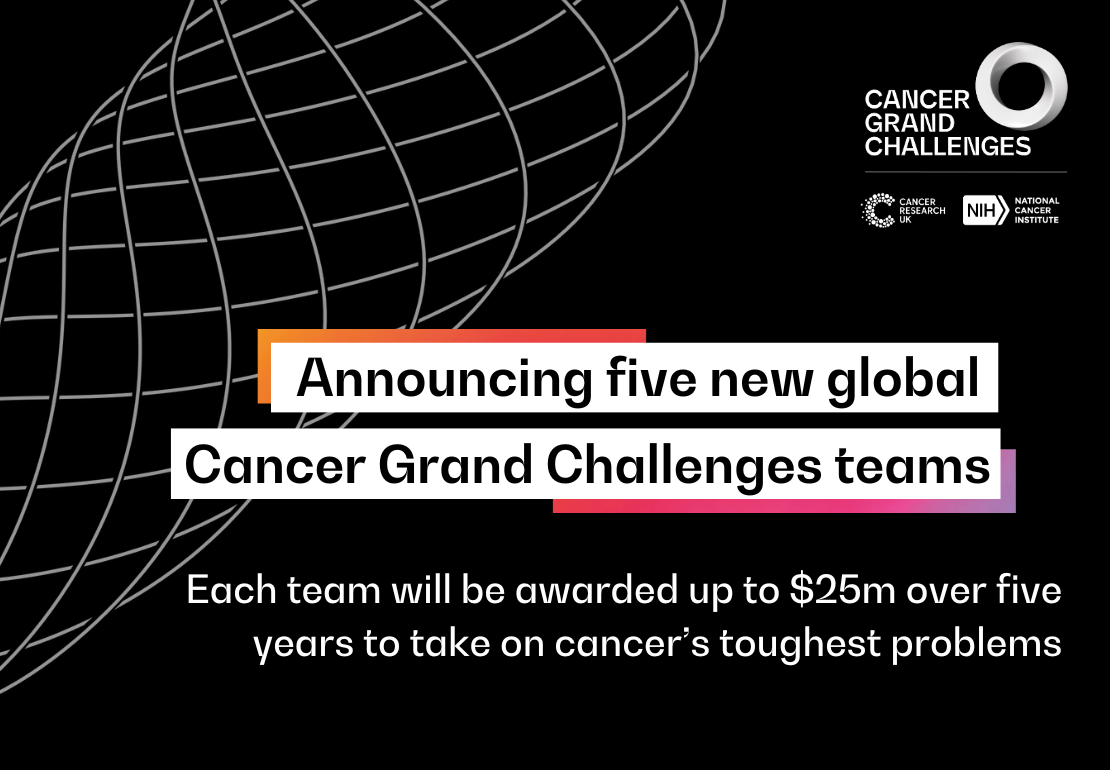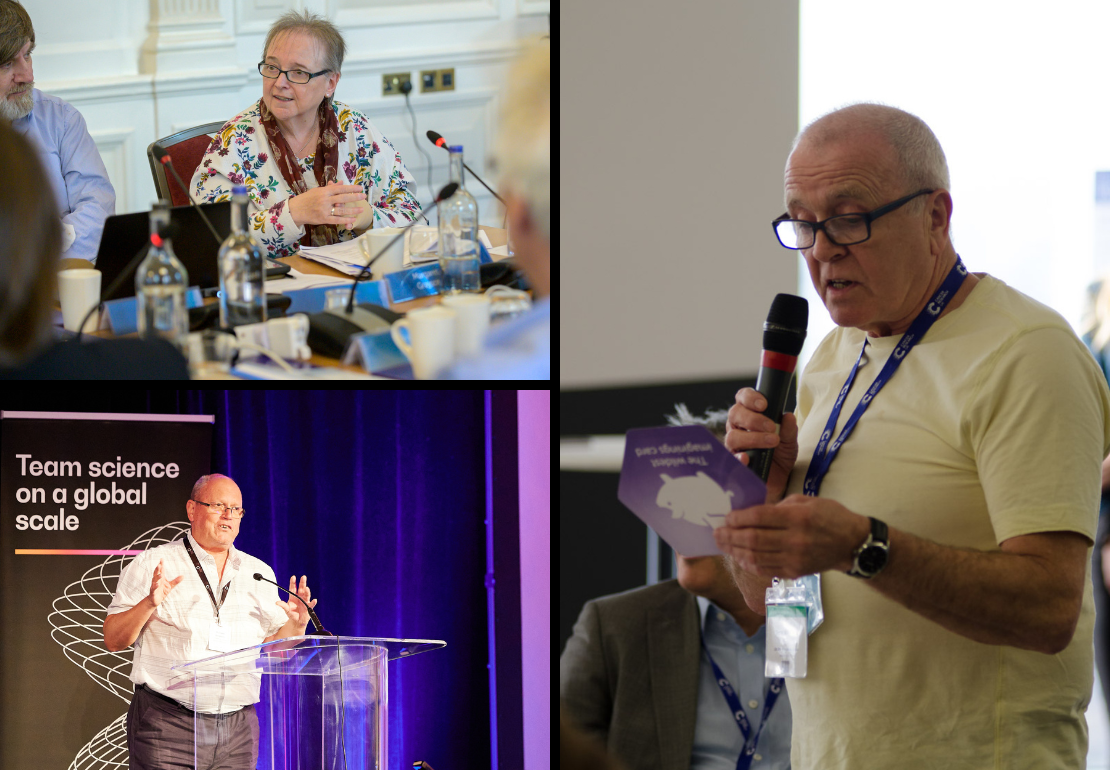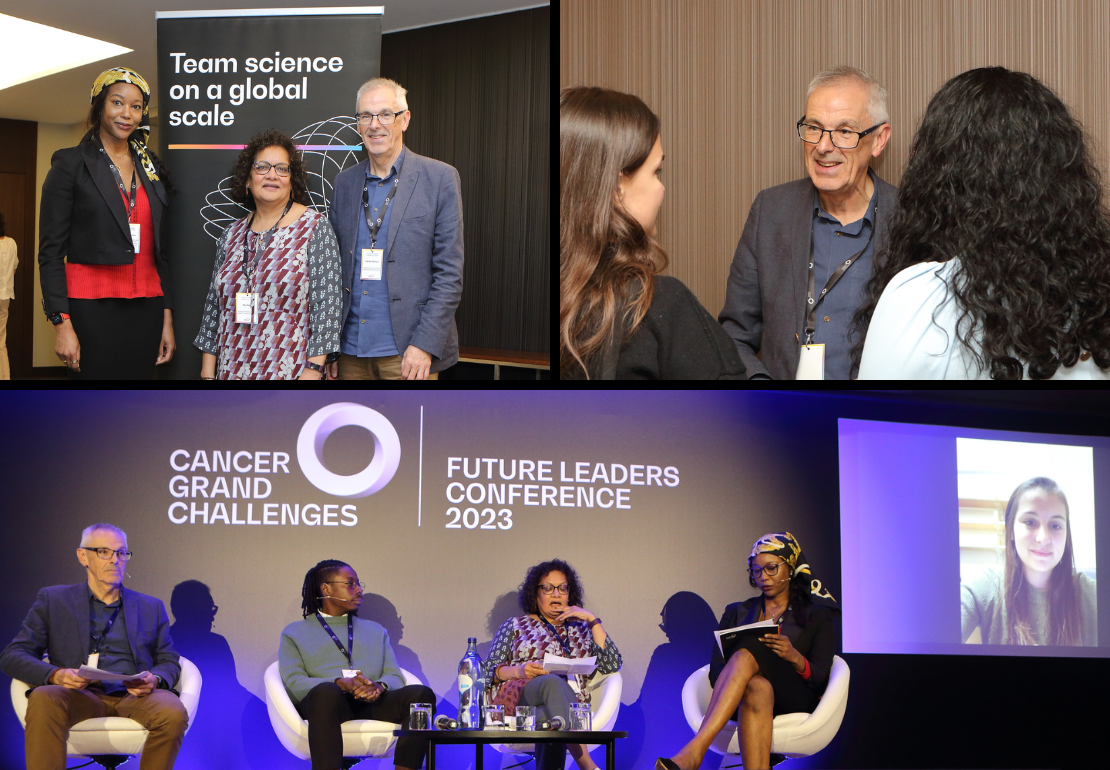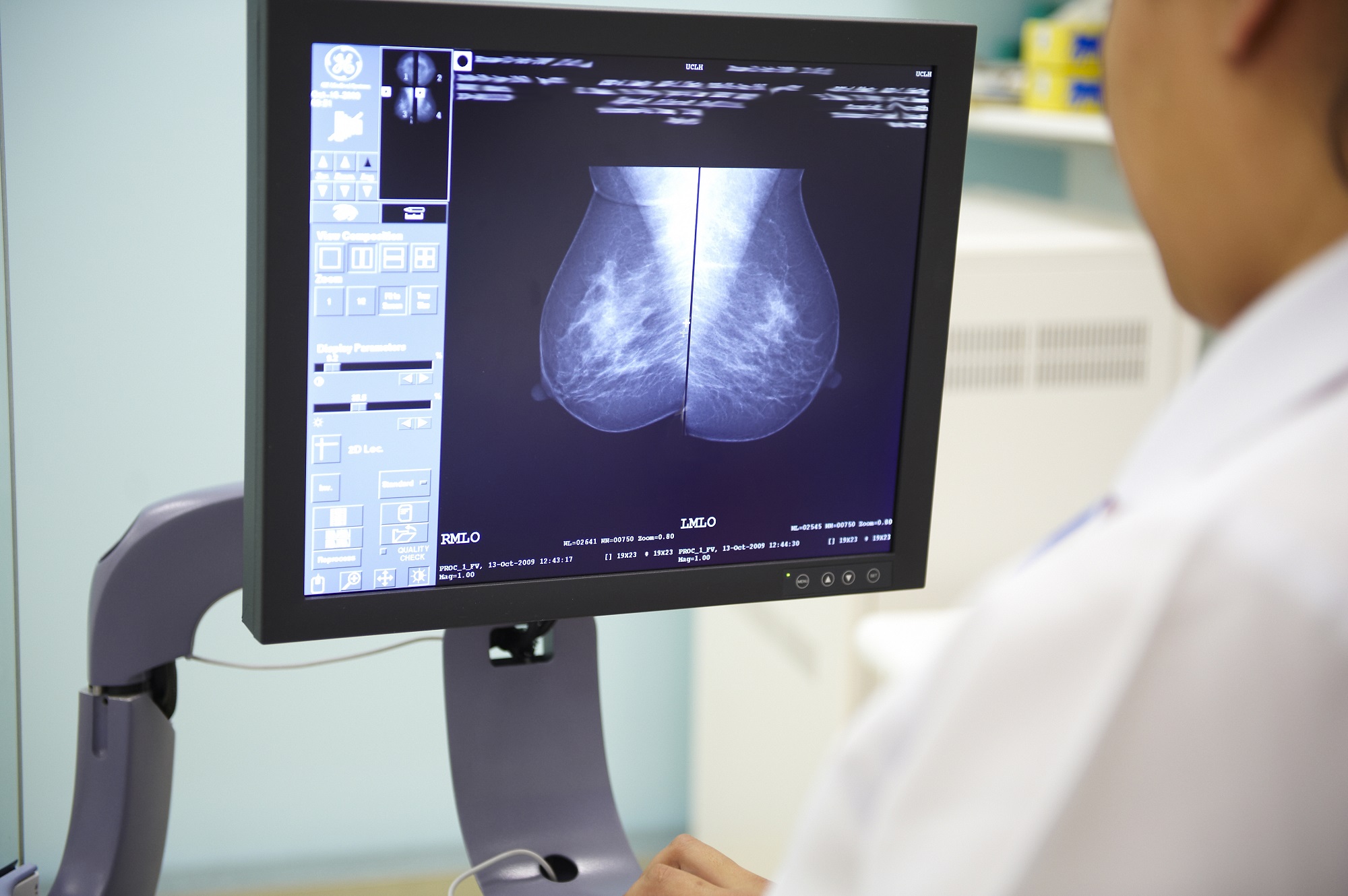PRECISION
Distinguish between lethal cancers that need treating, and non-lethal cancers that don’t

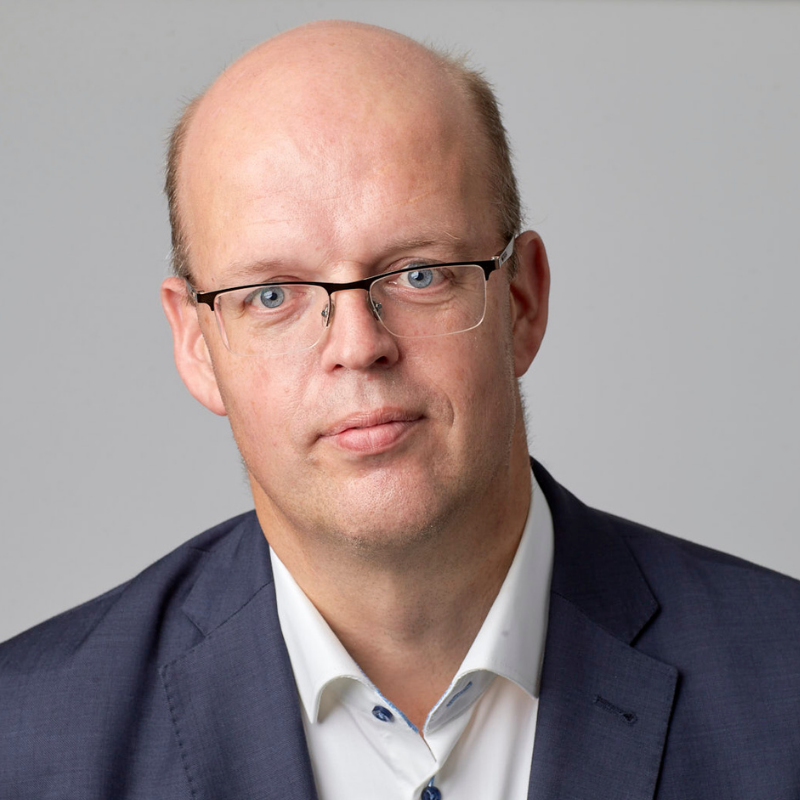
Professor Jelle Wesseling, Team Lead
Senior Group Leader, The Netherlands Cancer Institute; Professor of Breast Pathology, Leiden University Medical Center
PRECISION
INSTITUTIONS
8
LOCATIONS
The Netherlands, UK and USA
FUNDED BY
Cancer Research UK and the Dutch Cancer Society - £15m
SPECIALISMS
Pathology, oncology, biology, genetics
Preventing unnecessary treatment
By distinguishing between people with DCIS who will develop breast cancer and those who won’t, the PRECISION team could spare thousands of women around the world unnecessary treatment, transforming their quality of life.
First, do no harm
Funded by:


‘First, do no harm’: the fundamental message of the Hippocratic Oath, pledged by all newly trained doctors around the world.
But when treating women with ductal carcinoma in situ (DCIS), a condition that can sometimes develop into breast cancer, doctors can inadvertently do a lot of harm. Despite most DCIS diagnoses remaining indolent, there is currently no way to distinguish between people whose DCIS will or won’t develop into breast cancer.
Unfortunately, this means that thousands of women with DCIS undergo hospital visits, surgery and even hormonal therapy and radiotherapy they don’t need, while also experiencing the associated unnecessary stress and anxiety.
Looking to change this is the PRECISION team: a group of experts from the Netherlands, UK and US. They’re on the hunt for biological clues – known as biomarkers – that could indicate whether a person with DCIS is likely to develop breast cancer. Ultimately, they want to help doctors give women a definitive answer to important questions: what is their individual risk of developing cancer? And do they need to undergo treatment?
On the hunt for clues
Playing a starring role in PRECISION’s approach is a cohort of high-quality patient samples, collected from women in the Netherlands, UK and US undergoing surgery for their DCIS.
The team will scrutinise the characteristics of these samples, including their genetic makeup and the kind of immune cells they contain. Long-term clinical information about these women will also be gathered, recording whether their DCIS came back, if they later developed breast cancer and, if so, whether it spread. Using mathematical modelling, the team will search for any patterns in the samples that correlate with patient outcome.
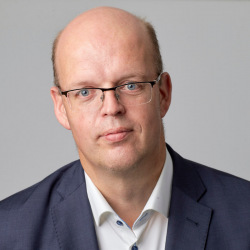
Professor Jelle Wesseling, Team Lead
Senior Group Leader, The Netherlands Cancer Institute; Professor of Breast Pathology, Leiden University Medical Center
Millions of women attend breast screening every year, but often lesions show up that will never go on to turn into full-blown breast cancer. Because doctors don't know which of these lesions could be dangerous, they often treat women just in case. In our project we will study thousands of these lesions in great detail to understand which are low- and high- risk and help doctors to make more informed decisions about treatment.
A definitive answer
Once the team has identified potential biomarkers, they’ll test them in larger clinical trials for women with DCIS, to see whether they can accurately predict whether a person will develop breast cancer. Their ultimate goal is to develop a test that accurately and reliably tells women with DCIS whether they need to receive treatment or not.
PRECISION’s ambition has the potential to dramatically improve quality of life for people living with DCIS, sparing thousands of people unnecessary treatment while making sure those who need it, get it.
The power of collaboration
Having access to high-quality patient samples with this much clinical information will enable the team to study DCIS in a way that hasn’t been doable before. This was made possible by a collaboration sparked at a scientific conference and nurtured ever since.
Organisation
Netherlands Cancer Institute
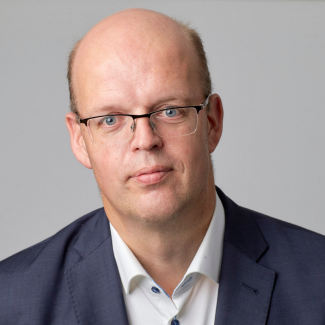
Alastair Thompson trained as a Clinician Scientist, leading the National Breast Tissue Bank, NCRI Breast Clinical Studies Group and key international adjuvant trials in the UK. He has successfully supervised 24 PhD or MD students and over 250 high impact peer reviewed research papers have included several global firsts.
As Professor of Surgery at MD Anderson Cancer Center, Houston, Texas since 2014, his research focus is on translational collaborations and innovative clinical trials in the preoperative setting for DCIS and invasive breast cancer.
In the Grand Challenge he will focus on tissue procurement through to clinical application of knowledge gained from the PRECISION DCIS program.
Organisation
Dan L Duncan Breast Center, Baylor College of Medicine
Discipline
Breast Cancer
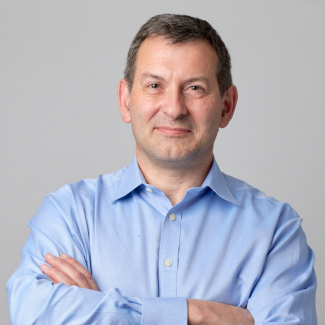
Serena began her career qualifying in medicine from the University of Cambridge in 2000 and completing specialist training in clinical genetics. She then began research hunting down the patterns of mutations that occur in cancer cells at the Wellcome Trust Sanger Institute, completing a PhD under Professor Mike Stratton in 2012.
In 2014, Serena was awarded the CRUK Future Leaders Prize in recognition of researchers who have demonstrated world-leading potential within 10 years of completing a PhD. She was elected to EMBO Membership in 2020 in recognition of her remarkable achievements in the life science.
Organisation
University of Cambridge
Discipline
Cancer Genomics
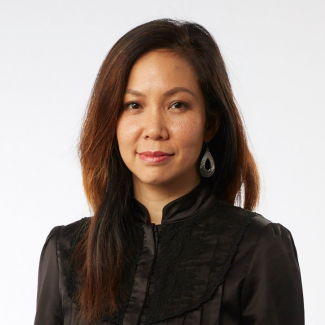
Jos Jonkers is group leader and head of the division of Molecular Pathology of the Netherlands Cancer Institute. In 2012 he was elected to EMBO membership and appointed as Head of Molecular Pathology at the NKI. As of 2013 he is Professor of Molecular Experimental Oncogenetics and Cancer Therapeutics of the University of Leiden, The Netherlands. His lab specializes in the genetic dissection of human BRCA-associated hereditary breast cancer and E-cadherin mutated invasive lobular breast cancer through the use of genetically engineered mouse models and patient-derived xenograft models, which are used for both basic and translational studies.
Organisation
The Netherlands Cancer Institute
Discipline
Genetics
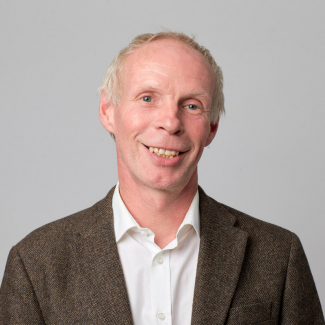
Esther Lips was trained in epidemiology and molecular biology. For the last eight years she has been working on the identification of prognostic and predictive biomarkers in breast cancer and breast cancer precursor lesions, ultimately leading to molecular based clinical tests.
Organisation
The Netherlands Cancer Institute
Discipline
Breast Cancer Biomarkers
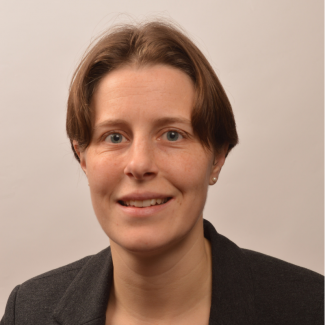
Dr Andrew Futreal aims to accelerate the translation of genomic technologies into therapeutic applications. Before joining MD Anderson in July 2012, he was the co-director of the Cancer Genome Project at the Wellcome Trust Sanger Institute, where he continues to be an honorary faculty member. His chief scientific accomplishments include the identification of the BRCA1 and BRCA2 breast/ovarian cancer susceptibility genes, leading a pioneering effort in large-scale systematic cancer genomics leading to the identification the BRAF mutations in melanoma, ERBB2 mutations in non-small cell lung cancer and multiple new cancer genes in renal cell carcinoma. He received the NIH Public Service Award in 1995 for discovering the BRCA1 gene involved in subsets of breast and ovarian cancer. Dr. Futreal applies his knowledge of cancer genomics to improve both short-term and long-term patient outcomes extending to cancer survivorship.
Organisation
University of Texas MD Anderson Cancer Center
Discipline
Cancer Genomics
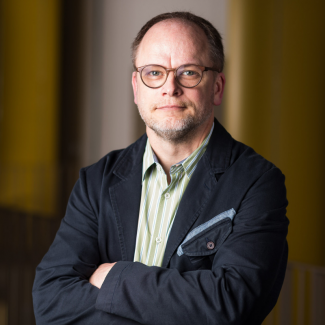
Daniel Rea is a Medical Oncologist and deputy Director of the Cancer Research UK Clinical trials unit in Birmingham. His interests are primarily in phase III early breast cancer trials. He is the Chief Investigator for the aTTom, TEAM, ROSCO and Nostra trials and is the deputy Chief Investigator for the LORIS trial.
Professor Rea will be coordinating the collection of blood and tissue samples in the DCIS surgery vs active observation trials LORIS, COMET and LORD which may then be used to validate novel findings from the multiple work packages making up the PRECISION Grand Challenge.
Organisation
University of Birmingham
Discipline
Breast Cancer

Elinor Sawyer is a Clinical Oncologist at Guy’s & St Thomas’ Hospital and King’s College London, specialising in the treatment of breast cancer. She trained as a clinician scientist at the London Research Institute. Her research interests are genetic predisposition to breast cancer, particularly lobular breast cancer and DCIS, and identification of biomarkers that predict progression of LCIS and DCIS.
As part of the PRECISION project she will focus on molecular analyses of the UK DCIS samples and the application of these findings to clinical practice.
Organisation
King’s College London & Guy’s and St Thomas’ NHS Foundation Trust
Discipline
Breast Cancer
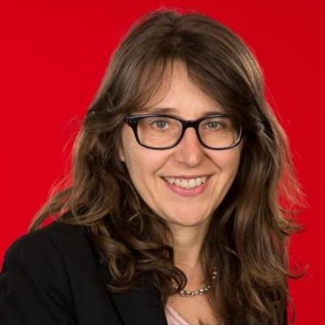
Nicholas is Associate Professor at the Department of Genetics, Division of Basic Science Research at The University of Texas MD Anderson Cancer Center. Nicholas pioneered single-cell DNA sequencing as a side project during his PhD work at Cold Spring Harbor Laboratory and Stony Brook University. Now an associate professor at The University of Texas MD Anderson Cancer Center, Nicholas continues to develop single-cell methods to study cancer evolution during invasion, metastasis, and therapy resistance.
Organisation
The University of Texas MD Anderson Cancer Center
Discipline
Single Cell Genomics
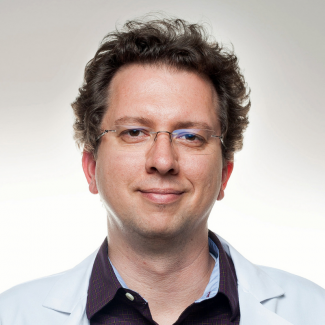
Fariba Behbod has a dual doctorate degree in clinical pharmacology and basic sciences in cell biology and pharmacology from the University of Texas Houston and MD Anderson Cancer Center. She joined The University of Kansas Medical Center in 2008, on a tenure track position as assistant professor. The goal of Fariba’s research is to study the role of cancer stem cells in invasive progression of human ductal carcinoma in situ (DCIS), using the mouse intraductal (MIND) transplantation model for growth of DCIS cell lines as well as primary human DCIS cells.
Organisation
University of Kansas Medical Center
Discipline
Breast Cancer
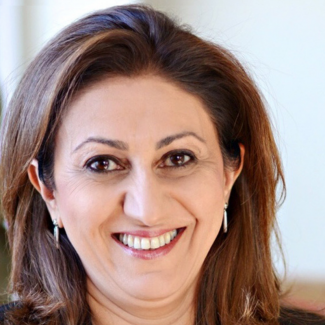
Jacco van Rheenen was originally trained in a variety of imaging techniques during his PhD with Dr. Kees Jalink at the Netherlands Cancer Institute. He was among the first to optimize imaging and develop software to quantitatively measure FRET on confocal microscopes. During his PhD in the lab of Dr. Jalink and as postdoc in the lab of Dr. Sonnenberg (Netherlands Cancer Institute) he used several microscopy techniques to study lipid signaling in tumor cells.
In 2008 Jacco was appointed as group leader at the Hubrecht Institute, where he utilizes his imaging techniques to visualize processes that are required for the metastasis of tumor cells in living animals. In July 2014 he was appointed professor in Intravital Microscopy at the University Medical Center Utrecht. In October 2017 he became senior group leader at the Netherlands Cancer Institute (NKI) in Amsterdam. In 2015, he was awarded an ERC consolidator grant, and in 2017 the Dr Josef Steiner Cancer Research Foundation Award.
Organisation
The Netherlands Cancer Institute and Oncode Institute
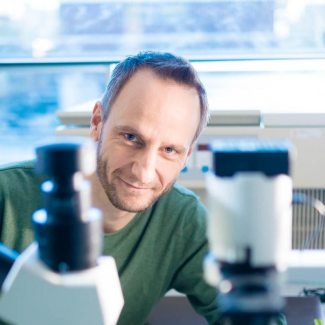
Donna Pinto is a Patient Advocate on the PRECISION team. She is also a Patient Advocate and the Social Media Director for the COMET Study. Donna is the founder of DCIS 411 and the co-founder of DCIS Redefined: Dilemmas, Choices & Integrative Solutions. These patient-centered websites provide support, resources and research regarding DCIS and the overtreatment controversy.
Donna has a BA in journalism and is skilled in public relations. She actively engages with the global DCIS community through her websites and social media.
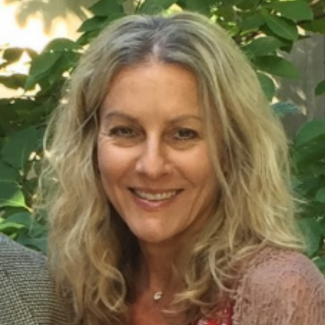
Hilary became involved as a patient in cancer research in 2010 after her own treatment for breast cancer, after realising how much research had benefited her. Since then she has contributed to a number of studies putting across the patient viewpoint, some of which are now changing practice for patients diagnosed today. She is currently a lay member of the NCRI Breast Cancer Clinical Studies Group. She trained as a volunteer and spent several years talking to clinic patients in Nottingham about the benefits and risks of using tissue for research and also now sit on the Access Committee for the Breast Cancer Now Tissue Bank.
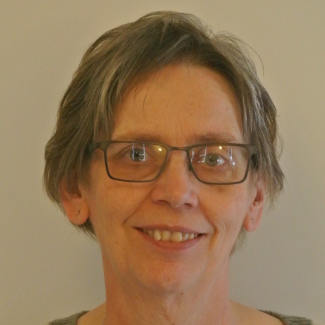
The diagnosis of breast cancer led to the commitment of patient activism with Ellen serving as the president of the Dutch advocacy network, The Dutch Europa Donna forum, part of the Borstkanker Vereniging Nederland (The Dutch Breast cancer Association). From 2001 until 2006 she served as vice president of the Board of Borstkanker Vereniging Nederland. And from 2013 onwards she has served as board member, with special assignment education of patient advocates.
Ellen has served as board member of Europa Donna, The European Breast Cancer Coalition from 2004 – 2010, the last 2 years as president.
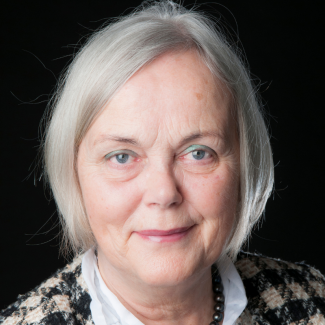
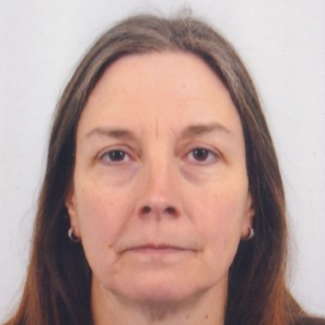
Deborah Collyar has applied a wealth of leadership skills from her successful IT business career to help create patient-centered medical research and healthcare after her first cancer diagnosis at the age of 32. She founded the international network, Patient Advocates In Research (PAIR) in 1996, “where research meets reality.” Her work encompasses many diseases, programs and policies at grassroots, national and international levels. Deborah works with academic institutions, government agencies, non-profits, community organizations, and patients of all kinds.
Organisation
Patient Advocates In Research (PAIR)
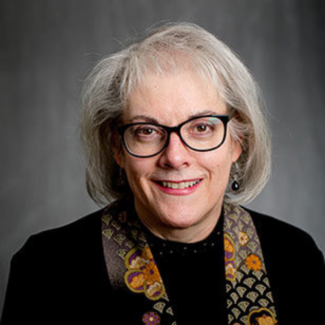
%20(3).png)
.jpg)
